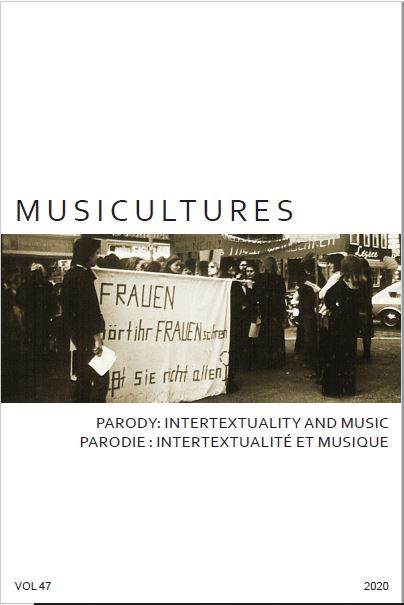Abstract
This article explores the concept of moutya otantik and its development, which must be placed within the context of the 1977 socialist revolution and the construction of the Seychelles as a nation. Moutya otantik is an ideal type in Seychellois discourse, but is not practiced as such. It harkens back to the past, particularly to the colonial era and the period of slavery. An analysis of memories and representations of moutya emphasizes changes in the practice throughout the Seychellois Cultural Renaissance, a movement spearheaded by the new state which brought moutya into both the public sphere and the country’s official history. Moutya otantik is at once considered both a result of its institutionalisation and a symbol of national heritage.
- The author retains copyright over the work.
- The author grants the journal owner (The Canadian Society for Traditional Music / La Société canadienne pour les traditions musicales) an exclusive license to publish the work.
- The author may post a pre-print or post-print version of the work (see definitions below) on a personal website for up to twelve months after the work is published in MUSICultures. After twelve months, the pre-print version must be replaced with the published version.
- The author may deposit the published PDF of the work in a non-commercial online repository twelve months after the work is published in MUSICultures, or any time thereafter.
- Any such deposit must include a link to the work on the MUSICultures website, e.g., https://journals.lib.unb.ca/index.php/MC/article/view/19996
A pre-print is a work-in-progress—a contribution not yet accepted, or perhaps even submitted, to MUSICultures.
A post-print is the version of a contribution after peer review and acceptance by MUSICultures, with revisions completed.
The published version is the PDF file of a contribution as it appears in MUSICultures.
Please note that academia.edu and ResearchGate.com are both for-profit repositories; authors may not deposit the published PDF of the work in these repositories until after the journal’s embargo period.
For permission to reprint or translate material from MUSICultures, please contact Heather Sparling, General Editor of MUSICultures (heather_sparling@cbu.ca).

